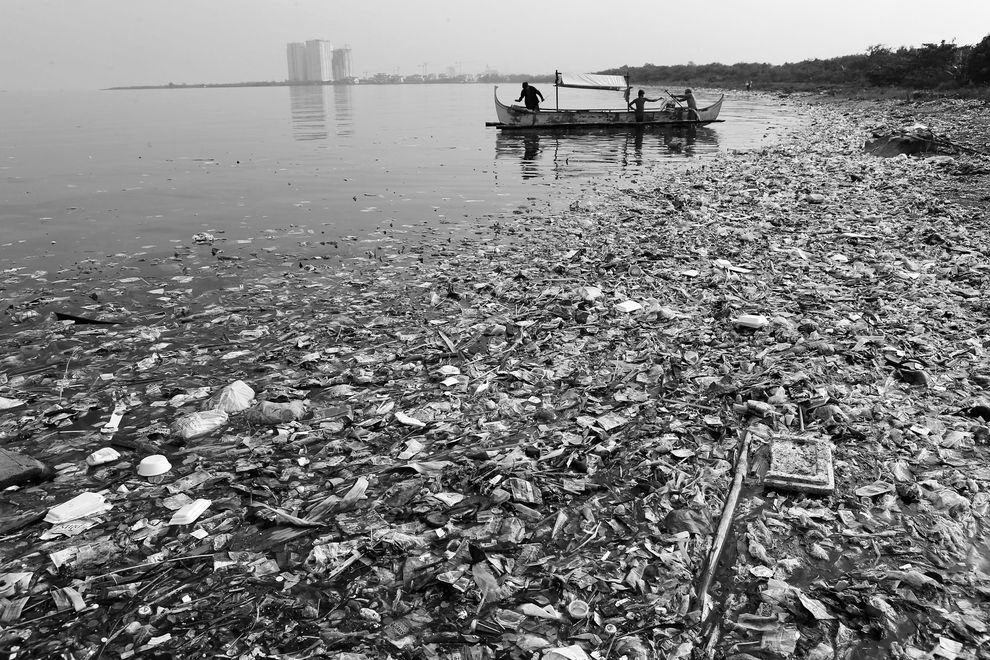Recently, France became the first country in the world to ban single-use plastic cups and plates as part of the Energy Transition for Green Growth Act.
St.Bonaventure should follow its lead and ban single-use plastics so that it can be an example for United States policymakers.
According to CNN, the new law states that by January of 2020, all disposable tableware must be made from 50 percent biologically sourced materials that can be composted in homes. By January 2025, that percentage will rise to 60.
Typical Americans use plastic products from the moment they wake up in the morning until the moment they go to bed without a second thought. Americans generate 10.5 million pounds of plastic waste per year, according to sustainablecommunication.org. We only recycle one or two percent of that plastic.
The rest of it is sitting in landfills or making its way into the environment. Our university and student body should be doing everything in their power not to contribute.
Each year, humans dump approximately 14 billion pounds of trash into the world’s oceans, much of it plastic. This carelessness kills millions of sea creatures and created the “Great Pacific Garbage Patch,” a collection of debris in the North Pacific Ocean that stretches from the west coast of North America to Japan.
Plastics are made from fossil fuels like oil and natural gas, which, according to plasticpollutioncoalition.org, release toxic emissions when extracted from the Earth. These emissions contribute to the quickly changing climate of Earth, putting life all over the planet at risk.
CNN reported that the French population throws away 150 single-use cups every second, or 4.73 billion per year. This new law, which aims to reduce the plastic waste in the country, can also help to reduce the 10.5 million pounds of plastic waste per year in the United States. We have the ability to put a law like this into action to help save our environment, and there is no excuse not to.
The French law has received some backlash from food-packaging manufacturers such as Pack2GoEurope. The company believes the plastic ban violates a European Union law on free movement of goods, according to CNN.
The company also argued the energy needed to produce these compostable tableware items might invalidate the environmental friendliness of the items themselves.
These arguments are short-sighted and clouded by the desire for personal wealth over common good.
Yes, the energy used to create these cups should be avoided as much as possible, too. The best option is for people to realize how easy and effective it is to use reusable items such as water bottles, rather than the plastic disposable versions. Plenty of students around campus already do this, but it should be a universal standard.
Virtually every piece of plastic ever produced still exists. That includes that water bottle you tossed in the bin after public speaking class last year — it still exists.
Corporations are trying to convince consumers that the plastic ban is a bad idea because it will severely hurt the financial status of their own companies. There is only one thing that could make that outcome seem worse to them than the thoughts of melting icebergs or oceans filled with plastic pollution: greed.
Another argument expressed against the French law is that these biodegradable materials are more expensive, and the burden could fall on low-income families.
This argument, again, is shortsighted. There is a small increase in the cost of the new compostable disposable cups and plates. But this argument leaves out the extremely high costs that members of the world will be forced to pay once these environmental problems are impossible to ignore.
The plastic debris in our oceans result in approximately $13 billion a year in losses, according to worldwatch.org, for cleaning up beaches and financial losses to the tourism and fishery industries.
Some places even offer people financial perks for considering the Earth in their choices. For example, my mom drinks Dunkin’ Donuts coffee. She used to get a disposable cup every morning and throw it out when she was finished. Now, she brings her own reusable travel mug to Dunkin’ Donuts, and they fill it up with double the amount of coffee for half the price she used to pay since she is not paying for any packaging. Reusable products could easily become the norm.
This new law in France also comes right after the country banned plastic bags in July of this year, according to The Washington Post. Many other countries, and some U.S. states, have also banned plastic bags. However, as an influential world power it is important that the United States ban plastic bags all together. St. Bonaventure can do its part by making our campus culture be one that says no to plastic bags in grocery stores.
Using reusable bags in grocery stores and shopping malls is a simple, low-cost one-time purchase for consumers and cuts down dramatically on all the negative effects the production and use of plastic bags has on the environment.
The Washington Post quoted the words of French President Francois Hollande about the bans, saying they are “to make France…an exemplary nation in terms of reducing greenhouse gas emissions, diversifying its energy model and increasing the deployment of renewable energy sources.”
America should follow in France’s footsteps to reduce pollution and damage to our Earth, as it is the only one we have. Let’s do our part as Bonnies to be leaders in a sustainable future.
Julia Mericle is a foreign correspondent for the Bona Venture. Her email is
mericlje13@bonaventure.edu







